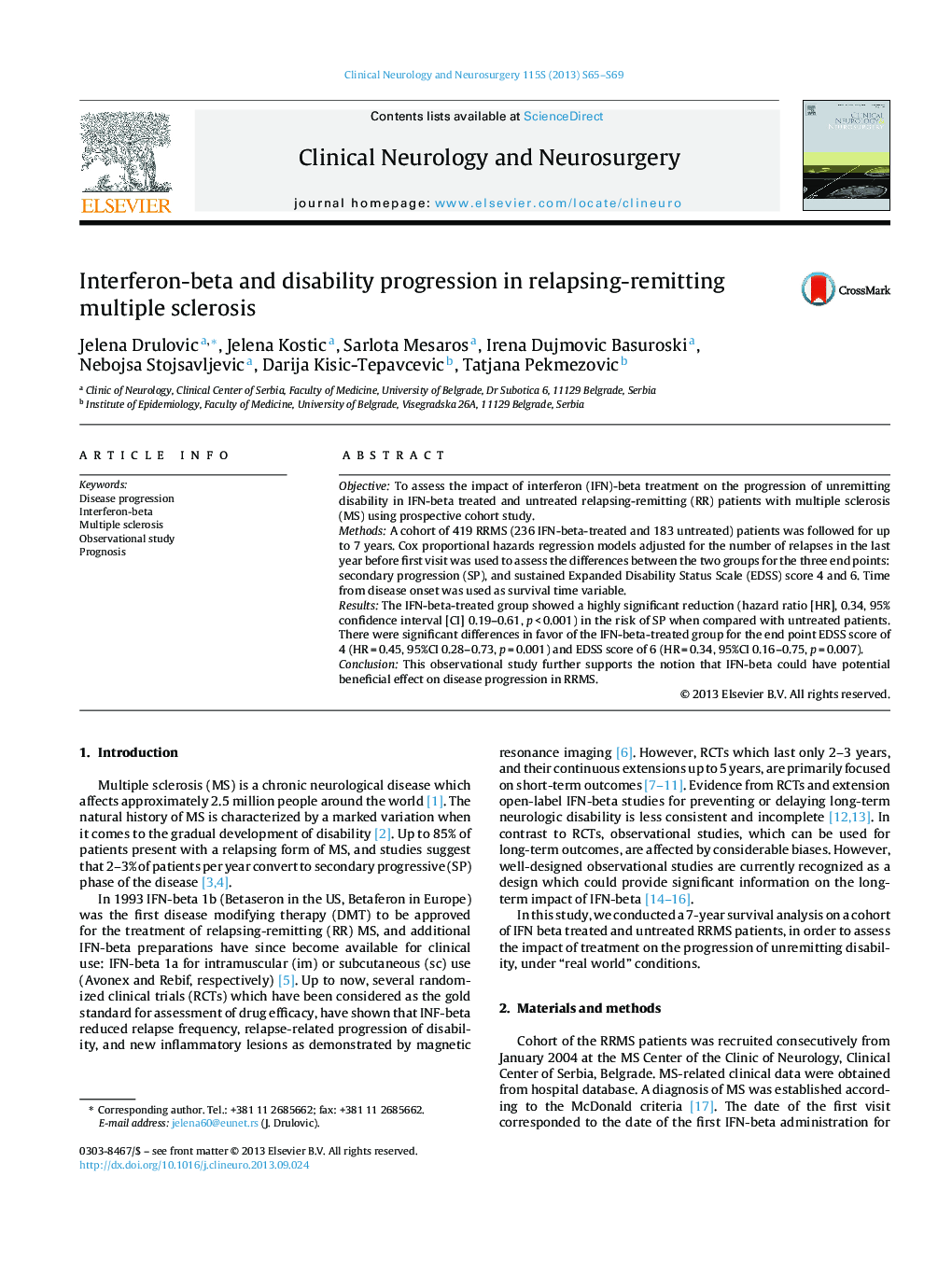| Article ID | Journal | Published Year | Pages | File Type |
|---|---|---|---|---|
| 3040587 | Clinical Neurology and Neurosurgery | 2013 | 5 Pages |
ObjectiveTo assess the impact of interferon (IFN)-beta treatment on the progression of unremitting disability in IFN-beta treated and untreated relapsing-remitting (RR) patients with multiple sclerosis (MS) using prospective cohort study.MethodsA cohort of 419 RRMS (236 IFN-beta-treated and 183 untreated) patients was followed for up to 7 years. Cox proportional hazards regression models adjusted for the number of relapses in the last year before first visit was used to assess the differences between the two groups for the three end points: secondary progression (SP), and sustained Expanded Disability Status Scale (EDSS) score 4 and 6. Time from disease onset was used as survival time variable.ResultsThe IFN-beta-treated group showed a highly significant reduction (hazard ratio [HR], 0.34, 95% confidence interval [CI] 0.19–0.61, p < 0.001) in the risk of SP when compared with untreated patients. There were significant differences in favor of the IFN-beta-treated group for the end point EDSS score of 4 (HR = 0.45, 95%CI 0.28–0.73, p = 0.001) and EDSS score of 6 (HR = 0.34, 95%CI 0.16–0.75, p = 0.007).ConclusionThis observational study further supports the notion that IFN-beta could have potential beneficial effect on disease progression in RRMS.
